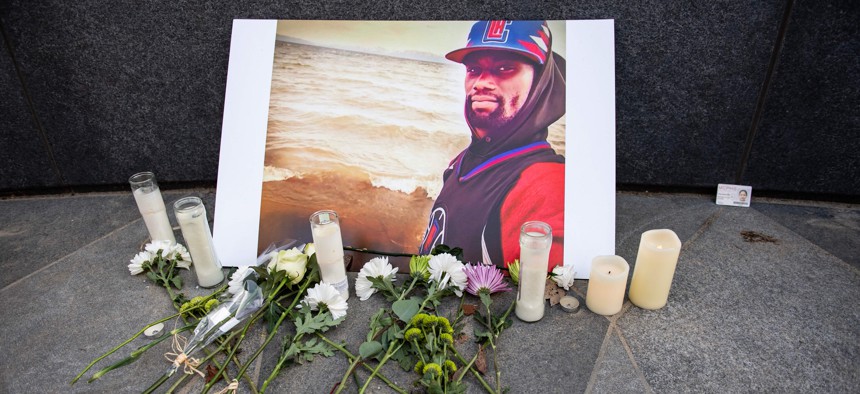This Moment is Rife with Opportunities to Advance Racial Equity

JOSEPH PREZIOSO/AFP via Getty Images
COMMENTARY | Government has an immense opportunity to lead on racial equity. It must lean in where it can, examine the data to determine if it is having an impact and adjust plans accordingly.
This year’s Black History Month was marred by a swift backlash against the teaching of Black history, race and the ways in which systemic racism has impacted Black people and people of color. Against this backdrop, there are ongoing questions about the effectiveness of diversity, equity and inclusion programs. To be clear, our focus should be on finding more ways to advance racial equity.
Our nation has long needed spaces to process what racial equity might look like. We especially need those conversations in the aftermath of police violence against citizens. This has always been true and the fatal beating of Tyre Nichols at the hands of Memphis police officers underscores the continued necessity of addressing systemic racism.
Many people couldn’t understand how Nichols’ death was an example of systemic racism since the violence against him came mostly at the hands of Black officers. But systemic racism means that Black people are treated differently than others because of—and not in spite of—their race, sometimes, even from those of the same race. Nichols was treated more harshly and more severely because the system of policing in this country allows Black and brown people to be treated more harshly.
Similarly, the Black officers involved were swiftly arrested and fired while the white officer involved went unnamed and employed days after the attack leading some to question whether all officers involved were treated similarly.
We cannot as a nation understand and unpack the way systemic racism works if we are not openly, honestly and communally asking ourselves how we transform systems so that they are more equitable. In the matter of Tyre Nichols, we should be asking ourselves how the system of policing should be changed, not just how the individual officers involved can be held accountable. But too often, we become overly preoccupied with individual actors versus the broader system.
The truth is that the culture of policing in the U.S. is designed to aggressively overpolice communities of color. It doesn’t matter who’s in the system, the system will continue to produce the same negative outcomes for Black and brown communities. This is why representation alone isn’t the answer to the problem. The nation needs to transform the system entirely and create a new paradigm of public safety. As Makani Themba said, “There is only one revolutionary question, and it is how.” That is the central question that the country needs to answer.
I understand firsthand the pain that families, friends and the community feel when someone has been harmed by law enforcement. In 1998, a close friend was murdered by an off duty police officer. When JJ died, there was silence from law enforcement and the media. His friends and family were left to process the loss of our loved one without community support and justice. What our community needed during that time is what Americans need today—substantive action that will lead to behavior change. In other words, it’s not enough for the officers in Nichols' case to be prosecuted, communities of color will not be safe from police violence until there is a systemic change to policing in America.
From our work at Race Forward, we know that the federal government has an immense opportunity to lead on racial equity. For centuries local, state and federal government entities have created and sustained policies and systems that produce inequitable outcomes for people of color. After decades of grassroots organizing by leaders of color, the Biden administration took meaningful steps to address structural racism within federal agencies and issued two historic executive orders on racial equity in 2021, and again in February 2023. The executive orders directed federal agencies to advance racial equity and develop corresponding equity action plans detailing how they would do so. We must continue pushing the federal government to lean in where they can, examine the data to determine if they are having an impact and adjust plans accordingly.
Those of us in the community have work to do as well. First, we must continue registering to vote and voting on Election Day. The district attorney in Memphis, the one who brought charges against five of the officers involved, was newly elected. If we do not vote, we do not have the opportunity to put people in office who are aligned with our vision and values. So in the same way that federal agencies have work to do, community members must also do the things that are in our power to do.
In addition to voting, we must never surrender our right to peaceably assemble. Although there are many measures being considered to prevent protests, peaceful assembly remains a powerful tool to garner attention and provoke conversations on race and racial justice.
One of the takeaways in this moment is that we cannot lose hope. There is a real opportunity to elevate the conversation and move to action rather than focus on intentions.
Glenn Harris is the president of Race Forward, a racial equity organization.
NEXT STORY: States Seek to Ease Child Care Crunch





